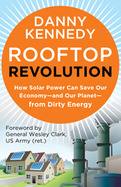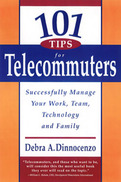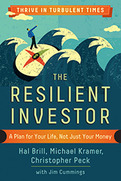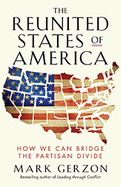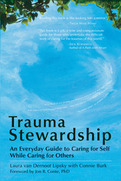2012
- Written by one of the world's leading solar entrepreneurs
- Powerfully lays out the case for solar power, which author Danny Kennedy calls "the biggest untold economic story of our time"
- Filled with eye-opening insights and inspiration
- Click here to read the press release
Solar power's detractors have been proclaiming that the collapse of solar panel manufacturer Solyndra proves solar is just a hippie pipe dream. But as Danny Kennedy points out, Solyndra's downfall actually proves the opposite: the company failed because it wasn't able to compete in a red-hot industry, not because solar isn't ready for prime time. In this succinct, hard-hitting book, Kennedy proves that solar can save money, create jobs, and protect the environmentand only politics and perception stand in its way.
Signs of solar's ascendency are everywhere. The industry employs 100,000 people in the United States, twice as many as in 2009 and twice the number of coal miners. In 2011, Warren Buffett invested $2 billion in a solar farm, and General Electric bought a start-up solar manufacturer, announcing, "By 2020 this is going to be at least a $1 billion product line." Production of solar-generated electricity rose by 45 percent in the first three quarters of 2010, while electricity from natural gas rose only 1.6 percent and coal declined by 4.2 percent.
But powerful forces are still arrayed against solar power, and that's why Kennedy wrote this book. We need a rooftop revolution to break the entrenched power of the coal, oil, nuclear, and natural gas industries (which Kennedy calls King CONG) and their bought-and-paid-for allies. Kennedy systematically refutes the lies spread by CONGthat solar is expensive, inefficient, and unreliable; and many other untruths -- and shows that the solar industry can become a far greater source of jobs than it already is. Praising the pioneers who are pushing solar forward, Kennedy also decries the rampant political pandering that keeps us dependent on dirty and dangerous forms of energy. Now is the time to move away from the declining sources of the past and unleash the unlimited potential of the sun.
In 101 Tips for Telecommuters, seasoned telecommuter Debra Dinnocenzo shares her practical, easy-to-implement "action tips" for making telecommuting as efficient and productive as possible. Written for full-time, occasional, and aspiring telecommuters, this helpful book covers everything from managing one's own time, balancing telecommuting with family demands, and working effectively with others from afar to networking the "virtual" way, getting a grip on technological overkill and even resisting the ever-beckoning refrigerator when working at home!
Dinnocenzo offers useful advice on special self-management factors to consider when telecommuting; how to keep in touch with all the people-coworkers, managers, support personnel, customers, and others-who make up your telecommuting world; and even how to nurture crucial ties with suppliers, vendors, and service providers.
In the new age of professional mobility, 101 Tips for Telecommuters is the perfect guide for the millions of Americans who want to succeed in this exciting and challenging new way of work.
-
A concise, user-friendly guide for telecommuters, written by a veteran telecommuting executive with more than a decade of first-hand experience as both a telecommuter and telemanager
-
Focuses on the myriad tasks and roles telecommuters must handle on a daily basis
-
Includes a Telecommuter Self-Assessment Checklist so readers can determine if telecommuting is right for them, a Telecommuter Start-Up Guide, and a Telecommuter Resource Guide to refer to whenever telecommuting gets tough
The Resilient Investment Map lays out all your assets—personal and physical as well as financial—and then provides three essential, timely strategies (Close to Home, Sustainable Global Economy, and Evolutionary Investing) that will help you grow each of them. The goal is to become more resilient: able to anticipate disturbance, rebuild as necessary, and improve when possible. You'll discover that the choices making you more resilient also enhance our communities, our economy, and the planet—building real wealth for all.
In this era of poisonous partisanship, The Reunited States of America is a lifesaving antidote. At a time when loyalty to party seems to be overpowering love of country, it not only explains how we can bridge the partisan divide but also tells the untold story of how our fellow citizens already are doing it.
This book, a manifesto for a movement to reunite America, will help us put a stop to the seemingly endless Left-Right fistfight while honoring the vital role of healthy political debate. Mark Gerzon describes how citizens all over the country—Republicans, Democrats, and independents—are finding common ground on some of the most divisive and difficult issues we face today.
2009
A longtime trauma worker, Laura van Dernoot Lipsky offers a deep and empathetic survey of the often-unrecognized toll taken on those working to make the world a better place. We may feel tired, cynical, or numb or like we can never do enough. These, and other symptoms, affect us individually and collectively, sapping the energy and effectiveness we so desperately need if we are to benefit humankind, other living things, and the planet itself.
In Trauma Stewardship, we are called to meet these challenges in an intentional way. Lipsky offers a variety of simple and profound practices, drawn from modern psychology and a range of spiritual traditions, that enable us to look carefully at our reactions and motivations and discover new sources of energy and renewal. She includes interviews with successful trauma stewards from different walks of life and even uses New Yorker cartoons to illustrate her points.
“We can do meaningful work in a way that works for us and for those we serve,” Lipsky writes. “Taking care of ourselves while taking care of others allows us to contribute to our societies with such impact that we will leave a legacy informed by our deepest wisdom and greatest gifts instead of burdened by our struggles and despair.”



